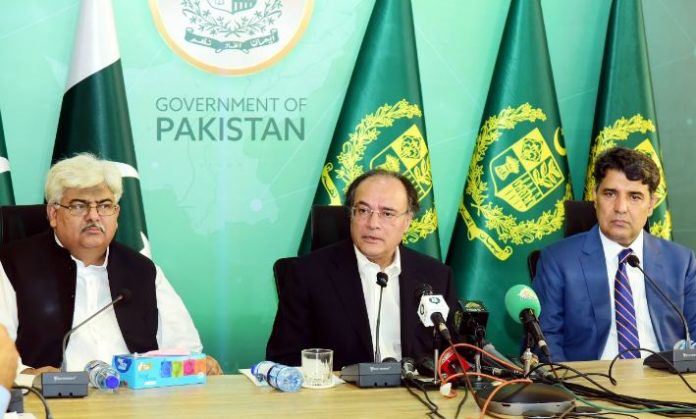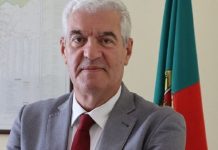ISLAMABAD, SEPT 29: Finance Minister Muhammad Aurangzeb stated Sunday that Pakistan economy’s “DNA needed to be fundamentally changed” to ensure that the latest International Monetary Fund (IMF) agreement is the country’s final one. The minister also stated that Pakistan must declare a “nuclear war” against the cash-based economy as part of the reforms.
The minister made the remarks during a news conference in Islamabad, where he, sitting alongside chairman of the Federal Board of Revenue (FBR), outlined many fiscal issues and the government’s efforts to address them.
At the start of the press conference, he stated that the newly negotiated IMF deal is good news for Pakistan.
China, UAE, Saudi Arabia: Pakistan wins additional financing assurances: IMF
The IMF Executive Board on September 25 approved the 37-month, $7-billion Extended Fund Facility for Pakistan. The Pakistani authorities and the IMF team reached staff-level agreement on the EFF in the amount equivalent to SDR 5,320 million (or about USD 7 billion) on July 12.
Aurangzeb stated clearly that Pakistan’s economic stability will continue to be threatened until major reforms in multiple sectors are implemented.
IMF Executive Board approves Pakistan’s $7bn bailout package: PMO
The minister stated that Pakistan must declare a “nuclear war” against the cash-based economy.
Reforms cannot be enacted unless the economy has been thoroughly documented, he said.
He stated that the current account surplus over the previous month can be attributed to robust remittances and other encouraging economic indicators.
The finance minister stated that we would need to make substantial adjustments to the economy to ensure that the current IMF arrangement is the last.
The finance minister stated that the FBR’s tax audit capabilities needed to be reviewed. The minister stated that 2,000 chartered accountants will be employed in this regard.
IMF executive board to discuss Pakistan programme on September 25: spokesperson
He also stated that in order to prevent people from being harassed by auditors, a new interface for monitoring the activity will be developed.
He also stated that adjustments were required to overcome existing loopholes in tax collection.
“We must control under-filing in a structured and professional manner,” the minister said.
He stated that independent auditors will investigate and consult with people on this matter.
The minister also addressed the issue of stalled dividends and profits for international investors in Pakistan. He stated that one topic we have been asked often during meetings with various international stakeholders is what we would do with profits and dividends that are restricted in Pakistan.
Existing investors require that we handle this issue in order to alleviate their concerns, he said.
Speaking about the government’s approach to the matter, he stated that we have begun the new fiscal year with a clean slate, and investment earnings and dividends have been cleared.
When asked about the broader benefits of economic stability on Pakistan, the finance minister stated that inflation and policy rates had both decreased.
He stated that the “industry should focus on Kibor rather than the policy rate.”
“The kibor is in negative,” according to the minister.
“I am hopeful that as inflation falls, the policy rate will follow.”
Aurangzeb added that Pakistan will continue to tap its salaried class and manufacturing sector for taxes unless it introduces reforms in the system.












